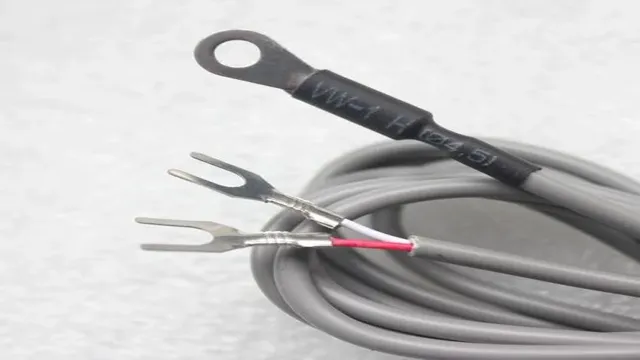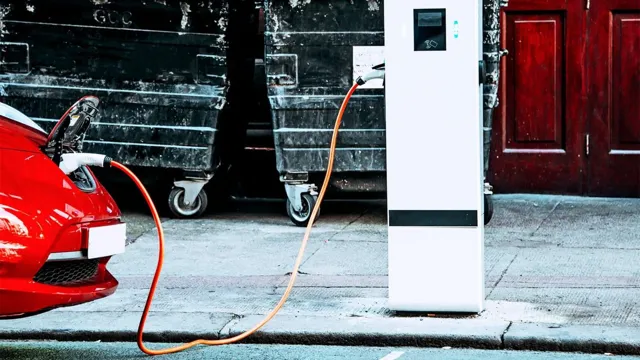Revving Up the Electric Car Revolution: A Comprehensive Comparison of Battery Sizes
If you’re considering making the switch to an electric car, you’re probably wondering about the battery size and how it compares with a traditional gas-powered car. Well, you’ve come to the right place because we’ve got everything you need to know about electric car battery size comparisons. Electric car batteries come in various sizes, and each size affects the car’s range and charging time.
So, it’s essential to understand the battery size before making a purchase decision. In this post, we’ll break down the different sizes of electric car batteries and how they compare, helping you make an informed decision about your next car. Let’s get started!
Overview of Different Electric Car Brands
When it comes to comparing the battery sizes of different electric car brands, there’s definitely a lot to consider. Tesla, for instance, is known for having some of the largest batteries on the market – the Model S Long Range Plus, for example, boasts a 100 kWh battery that can provide up to 402 miles of range on a single charge. Other brands, however, may not have such impressive numbers – the Nissan Leaf, for example, has a battery size that ranges from 40 kWh to 62 kWh, depending on the specific model.
But, battery size isn’t the only thing that affects an electric car’s range and performance – factors like motor efficiency and aerodynamics can also play a big role. Ultimately, when choosing an electric car, it’s important to consider a variety of factors to find the best fit for your lifestyle and needs.
Battery Size Comparison Chart
Electric car battery sizes can vary widely depending on the brand and model. Let’s take a look at some popular electric car brands and their battery sizes. Tesla’s Model S and Model X have the largest battery sizes on the market, with options ranging from 75 kWh to 100 kWh, giving drivers a range of up to 370 miles.
Nissan’s Leaf has a 40 kWh battery, giving drivers a range of up to 150 miles. The Chevrolet Bolt has a 60 kWh battery, with a range of up to 259 miles. BMW’s i3 has a 4
2 kWh battery, with a range of up to 153 miles. It’s important to remember that battery size is not the only factor that affects a car’s range – things like driving habits and weather conditions also play a role. However, having a larger battery can give drivers more confidence and peace of mind knowing that they won’t run out of juice on a long journey.
Model Comparison – Battery Size and Capacity
When it comes to electric car brands, there are many different options available. One important factor to consider is the size and capacity of the car’s battery. Tesla is widely known as a leader in the electric car industry, and their Model S has a battery capacity of up to 100 kWh, which can provide a range of up to 402 miles on a single charge.
In comparison, the Nissan Leaf has a battery capacity of 40 kWh and a range of up to 149 miles, while the Chevy Bolt has a battery capacity of 66 kWh and a range of up to 259 miles. Each brand has its own unique features and benefits, so it’s important to do your research and determine which electric car brand and battery size best fits your needs.
How Battery Size Affects Driving Range
When it comes to electric cars, battery size is a key factor in determining driving range. The larger the battery, the more energy it can store and the further the car can travel on a single charge. For example, the Nissan Leaf with a 24 kWh battery has a range of around 84 miles, while the Tesla Model S with a 100 kWh battery can travel up to 370 miles on a single charge.
It’s important to note that battery size isn’t the only factor that affects driving range – variables like driving style, weather conditions, and terrain can also impact how far an electric car can go on a single charge. However, battery size is a crucial consideration when choosing an electric car, as it can significantly impact the car’s overall performance and range. So, if you’re in the market for an electric car, make sure to compare battery sizes and choose one that meets your range needs.
Real Life Case Studies
When it comes to electric vehicles, battery size plays a crucial role in determining the driving range. In fact, it is one of the biggest factors that can affect the distance you can travel on a single charge. Generally, the larger the battery capacity, the longer the driving range.
For instance, a Tesla Model S with a 100 kWh battery can travel up to 370 miles on a single charge, while a Nissan Leaf with a 40 kWh battery can only travel up to 150 miles. The battery size also affects charging time, with larger batteries taking longer to charge than smaller ones. Therefore, it is important to consider your daily driving needs and choose a battery size that suits your lifestyle.
In conclusion, while a larger battery will provide a longer driving range, it may not always be necessary depending on your personal requirements.
Factors That Affect Battery Performance
When it comes to battery performance, size definitely matters. The bigger the battery, the longer your electric vehicle can go on a single charge. This is because larger batteries can store more energy, which directly affects the driving range.
So, a larger battery size is especially important if you plan on taking long trips or living in an area where charging stations are scarce. However, a larger battery size comes with a trade-off—the overall weight of the vehicle increases, which can negatively impact handling and acceleration. It’s like carrying a heavier backpack on a hike; it may have more supplies, but it can also slow you down.
Therefore, it’s essential to find a balance between battery size and vehicle weight to achieve optimal performance. Ultimately, the decision on battery size depends on individual needs, preferences, and driving habits.
Battery Recharge Time Comparison
Battery recharge times can be affected by the size of the battery in your electric vehicle. Generally, the larger the battery, the longer it takes to recharge. This means that the size of your battery directly affects your driving range and how often you will need to recharge.
For example, a car with a smaller battery may need to be charged more frequently than a car with a larger battery, but the recharge time will likely be shorter. It’s important to consider your driving habits and needs when choosing the size of your electric vehicle battery. If you frequently drive long distances, you may want to invest in a larger battery that can provide a longer driving range between charges.
On the other hand, if you mostly use your electric vehicle for short trips, a smaller battery may be all you need. Ultimately, the size of your battery affects both the driving range and recharge time of your electric vehicle. By choosing the right size battery for your needs, you can enjoy the benefits of electric vehicle ownership without sacrificing convenience or performance.
Future of Electric Car Battery Technology
Electric car battery size comparison is a hot topic in the world of electric vehicles. As the demand for electric cars increases, manufacturers are constantly working on improving their battery technology. The future of electric car battery technology looks promising with new developments in materials, chemistry, and design.
With advancements in battery technology, electric cars will have a longer range and shorter charging times. Battery size is a crucial factor in an electric car’s overall performance and efficiency, and smaller, more powerful batteries will lead to significant improvements in the industry. As electric car technology continues to improve, we can expect to see smaller, lighter, and more efficient batteries in the future.
With continued research and development, electric cars are destined to become the norm in the years to come, and the debate over battery size will be a thing of the past.
Possible Advancements in Battery Size and Efficiency
The future of electric car battery technology is looking brighter than ever before. With advances in science and engineering, it seems that every year we are getting closer and closer to creating the perfect battery. Imagine being able to drive your car for thousands of miles without needing to stop and recharge.
This is not just a pipe dream anymore, as scientists are making significant strides towards achieving this goal. One of the ways this is happening is through the development of higher capacity batteries. By using new materials and innovative designs, researchers are creating batteries that are not only smaller but much more powerful.
These advances will undoubtedly lead to cars with longer ranges and more efficient energy usage. So, the possibilities for future battery technology are truly exciting, and it’s only a matter of time before we see these advancements in action.
Impact on Electric Car Charging Infrastructure
The future is looking bright for electric car battery technology, and it’s set to have a significant impact on the infrastructure of electric car charging. Advancements in battery technology mean that electric cars are now able to travel further and charge faster than ever before. This means that charging stations will need to evolve to keep up with the increased demand for faster charging times.
Companies are already working on developing smart charging networks that will be able to dynamically manage the charging needs of electric vehicles, ensuring that they are charged quickly and efficiently. In the future, it’s likely that we will see a widespread adoption of wireless charging technology, which will allow electric cars to charge up simply by parking in designated areas. With all these innovations in the pipeline, it’s clear that electric car battery technology is set to transform the way we think about transportation.
Conclusion
In conclusion, when it comes to electric car battery size, bigger isn’t always better. It’s all about finding the perfect balance between range, performance, and cost. After all, what good is a massive battery if it takes forever to charge or breaks the bank? So, whether you’re team Tesla or team Nissan Leaf, remember that the true measure of a great electric car battery isn’t its size, but its ability to power you on your journey, whether it’s across town or all the way to Mars (thanks, Elon Musk).
Happy driving!”
FAQs
What is the average battery size of an electric car?
The average battery size of an electric car is around 60 kWh.
Are there electric cars with larger battery sizes than 60 kWh?
Yes, there are some electric cars that come with battery sizes larger than 60 kWh. For example, the Tesla Model S Long Range has a battery size of 100 kWh.
Can the size of an electric car battery affect the range of the vehicle?
Yes, the size of the battery can affect the range of an electric car. Generally, a car with a larger battery size would have a longer range than a car with a smaller battery size.
Do electric car manufacturers offer options for battery size?
Yes, some electric car manufacturers offer options for battery size, which can affect the price of the vehicle. For example, the Nissan Leaf offers a 40 kWh and a 62 kWh battery option.




